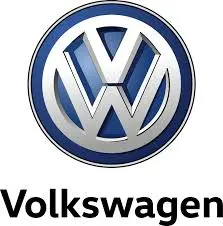The Hard Reality Behind Volkswagen’s Challenges: Analyzing the Future of European Auto Industry
Volkswagen Group is currently at the center of a storm that encapsulates the struggles of not just one company, but the entire German auto industry and, by extension, the European economy. In a recent incident, CEO Oliver Blume faced a raucous crowd of 20,000 employees who booed him as he attempted to communicate the harsh realities confronting the company. His declaration that "we’re not operating in a fantasy world" was a stark reminder that the auto giant is grappling with a rapidly changing market landscape, exacerbated by a series of missteps.
The Reality Check
Despite his attempt to bestow a pragmatic perspective, many employees appear unconvinced. Blume’s comments surfaced amid significant turmoil: a walkout involving 100,000 union members and an ongoing struggle to adapt to climate-related regulations. The detachment between management and workers raises serious questions about Volkswagen’s direction. As a key player in the European automotive sector, Volkswagen’s fate resonates with the larger conversation surrounding climate change objectives and market viability.
A Shift in Consumer Preference
Blume emphasized the need to target Chinese consumers, yet a pivotal question looms: why would these consumers opt for European electric vehicles (EVs) when they can purchase reliable models for a fraction of the price? This dilemma not only addresses affordability but also highlights the monumental rise of the Chinese EV industry. Even American auto executives have publicly praised the technological innovations emerging from China, illustrating that competitors are ramping up their game.
Once heralded as a lucrative market for German automobile exports, China has transitioned into a formidable competitor. Germany’s auto sector, which contributed 17% of the nation’s GDP in 2023, has witnessed significant setbacks since the government imposed several stringent regulations in the name of climate initiatives.
Echoes of the Emissions Scandal
Digging deeper into Volkswagen’s history, we find echoes of the infamous emissions scandal. This landmark event in 2015 was nothing short of a pivotal moment for Germany’s automotive landscape. It cast a long shadow not only over Volkswagen but also over the perception of German engineering as a whole. The repercussions continue to be felt as the industry battles to maintain its reputation while striving for compliance with increasingly aggressive climate standards.
The fallout has resulted in significant financial strain; Volkswagen has seen its operating profits decline by 11.4%. As demand for EVs fails to meet production levels akin to traditional fuel-powered vehicles, the company has announced pay cuts for approximately 120,000 workers, further embedding the crisis within the workforce.
The EU’s Economic Tether
Germany, often referred to as the economic powerhouse of the European Union, faces critical challenges that could ripple throughout the Eurozone. The implications are dire, with revenues from vehicle sales to China showing a notable decline. While Germany managed to ship 241,000 cars to China valued at €15.1 billion in 2023—representing one in five cars on Chinese roads—the growth of China’s own automotive sector at a staggering rate of 156% from 2021 to 2023 underscores a troubling shift in market dynamics.
A Call for Realism
Chancellor Olaf Scholz’s remarks labeling China as a "systemic rival" overlook the complex interdependencies and the role of the German government in stifling innovation within the private sector. Surprisingly, a recent study conducted by the German Chamber of Commerce in China found that almost half of the surveyed businesses expressed intentions to invest more heavily in China, with only a small fraction contemplating exit strategies.
The Path Ahead
As Europe continues to firmly grasp the notion of climate change—a worthy cause in itself—the harsh truth is that this movement may be inadvertently crippling the continent’s economic engines. Economic models dependent on unfettered trade and competitiveness could falter under the weight of unrealistic climate objectives.
At Extreme Investor Network, we realize that navigating these shifting economic landscapes requires foresight and adaptability. The future may herald a potential decline in Germany’s overall economic footprint, but with strategic insights and robust engagement with rapidly evolving markets, there remains hope for resilience against the backdrop of change.
As the situation unfolds, one thing is certain: the roads ahead will demand not just electric vehicles, but electric thinking in the corridors of power and leadership across Europe. Only then can the German auto industry—along with its workers and investors—avoid the pitfalls of a fantasy world and secure a more sustainable and profitable future.

